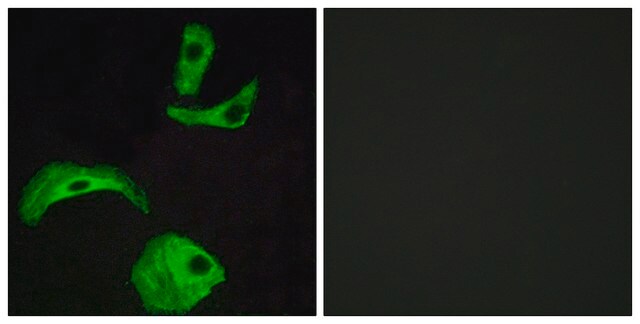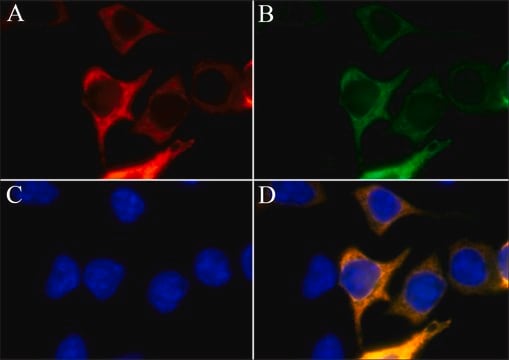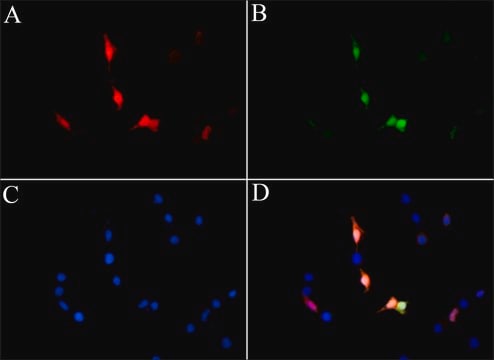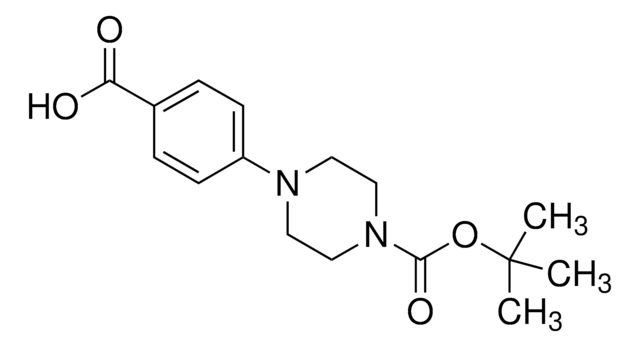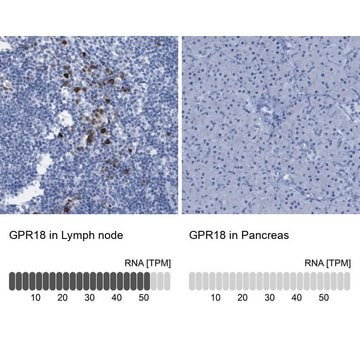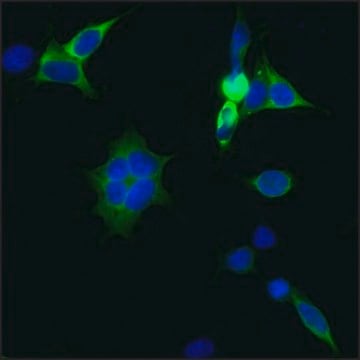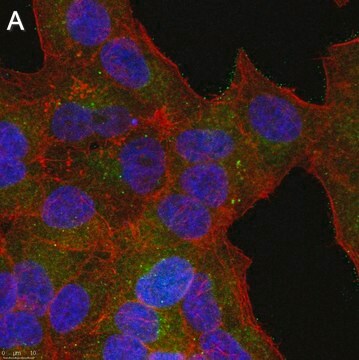SAB4501253
Anti-GPR18 antibody produced in rabbit
affinity isolated antibody
Sinónimos:
G-protein coupled receptor 18, GPCRW, GPR18, N-arachidonyl glycine receptor, NAGly receptor
Seleccione un Tamaño
MXP 11,188.00
Seleccione un Tamaño
About This Item
MXP 11,188.00
Productos recomendados
origen biológico
rabbit
conjugado
unconjugated
forma del anticuerpo
affinity isolated antibody
tipo de anticuerpo
primary antibodies
clon
polyclonal
Formulario
buffered aqueous solution
mol peso
antigen 38 kDa
reactividad de especies
mouse, human, rat
concentración
~1 mg/mL
técnicas
ELISA: 1:1000
immunofluorescence: 1:100-1:500
western blot: 1:500-1:1000
Nº de acceso NCBI
Nº de acceso UniProt
Condiciones de envío
wet ice
temp. de almacenamiento
−20°C
modificación del objetivo postraduccional
unmodified
Información sobre el gen
human ... GPR18(2841)
Categorías relacionadas
Descripción general
Inmunógeno
Immunogen Range: 191-240
Acciones bioquímicas o fisiológicas
Características y beneficios
Forma física
¿No encuentra el producto adecuado?
Pruebe nuestro Herramienta de selección de productos.
Código de clase de almacenamiento
10 - Combustible liquids
Clase de riesgo para el agua (WGK)
nwg
Punto de inflamabilidad (°F)
Not applicable
Punto de inflamabilidad (°C)
Not applicable
Elija entre una de las versiones más recientes:
Certificados de análisis (COA)
¿No ve la versión correcta?
Si necesita una versión concreta, puede buscar un certificado específico por el número de lote.
¿Ya tiene este producto?
Encuentre la documentación para los productos que ha comprado recientemente en la Biblioteca de documentos.
Active Filters
Nuestro equipo de científicos tiene experiencia en todas las áreas de investigación: Ciencias de la vida, Ciencia de los materiales, Síntesis química, Cromatografía, Analítica y muchas otras.
Póngase en contacto con el Servicio técnico